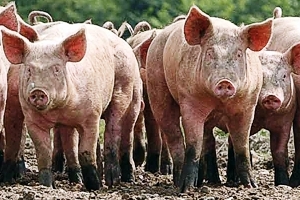Namibian farmers called to join pork market promotion scheme

Namibia’s pig producers association is calling on farmers to register with the Meat Board and join in a pork promotion scheme that aims to lobby for pork import restrictions to benefit domestic industry, allAfrica reports.
Pig farming has an immense growth potential in Namibia, and farmers stand to benefit a great deal from the introduction of a Pork Market Share Promotion Scheme on October 1. Flip de Villiers, chairman of the Pig Producers’ Association, called on farmers to take part in this new scheme and register with the Meat Board of Namibia.
The principle of the scheme is to implement a quantitive restriction on the importation of fresh or frozen pork cuts or carcasses on a 1-to-3 ratio (local purchases to imports per kilogram).
The aim is to establish an interim intervention to grow the pork industry; ensure economical viability in the sector; ensure future co-existence of pig production and processing sectors; and protect farmers against external influences such as low price imports.
Pig farming in Namibia is largely a part-time activity and most farmers do not rear pigs.
However, De Villiers said there are numerous potential advantages of pig production in Namibia, and farmers stand to benefit a great deal from well-supported pig farming activities in the country.
Namibia’s pork market is threatened by cheaper pork imports, especially from South Africa, and retail shops are forced to import most of their pork from South Africa due to a lack of pig farming in Namibia. Pork is being sold at prices far below the production cost per kilogram for local producers, and imported pork is squeezing locals out of the market.
Only between 23% and 25% of pig products sold are locally produced.
There are currently only two major pig farms in the Namibia: one at Tsumeb in Oshikoto region and another at Mariental in the Hardap region.











